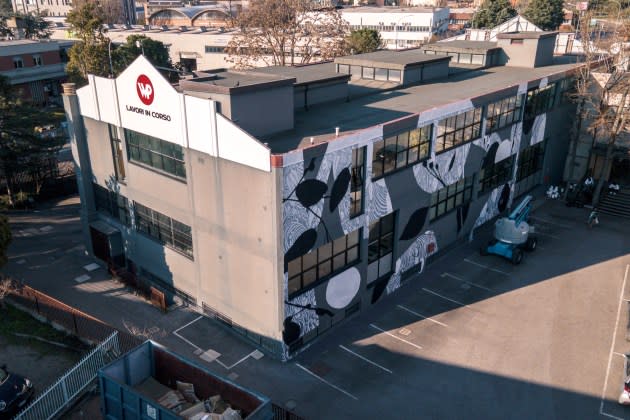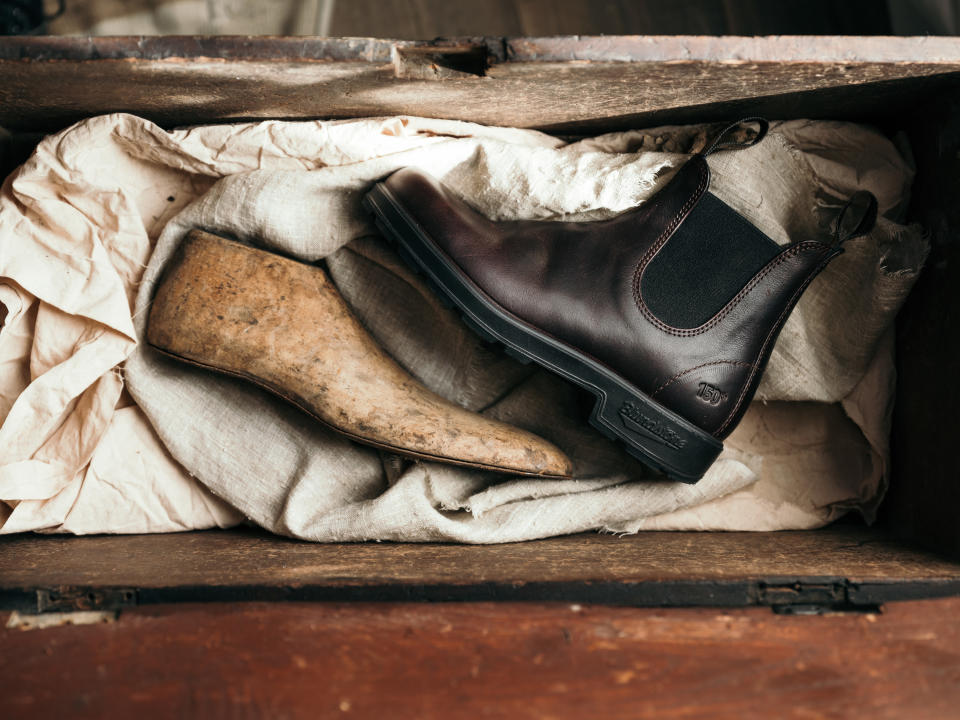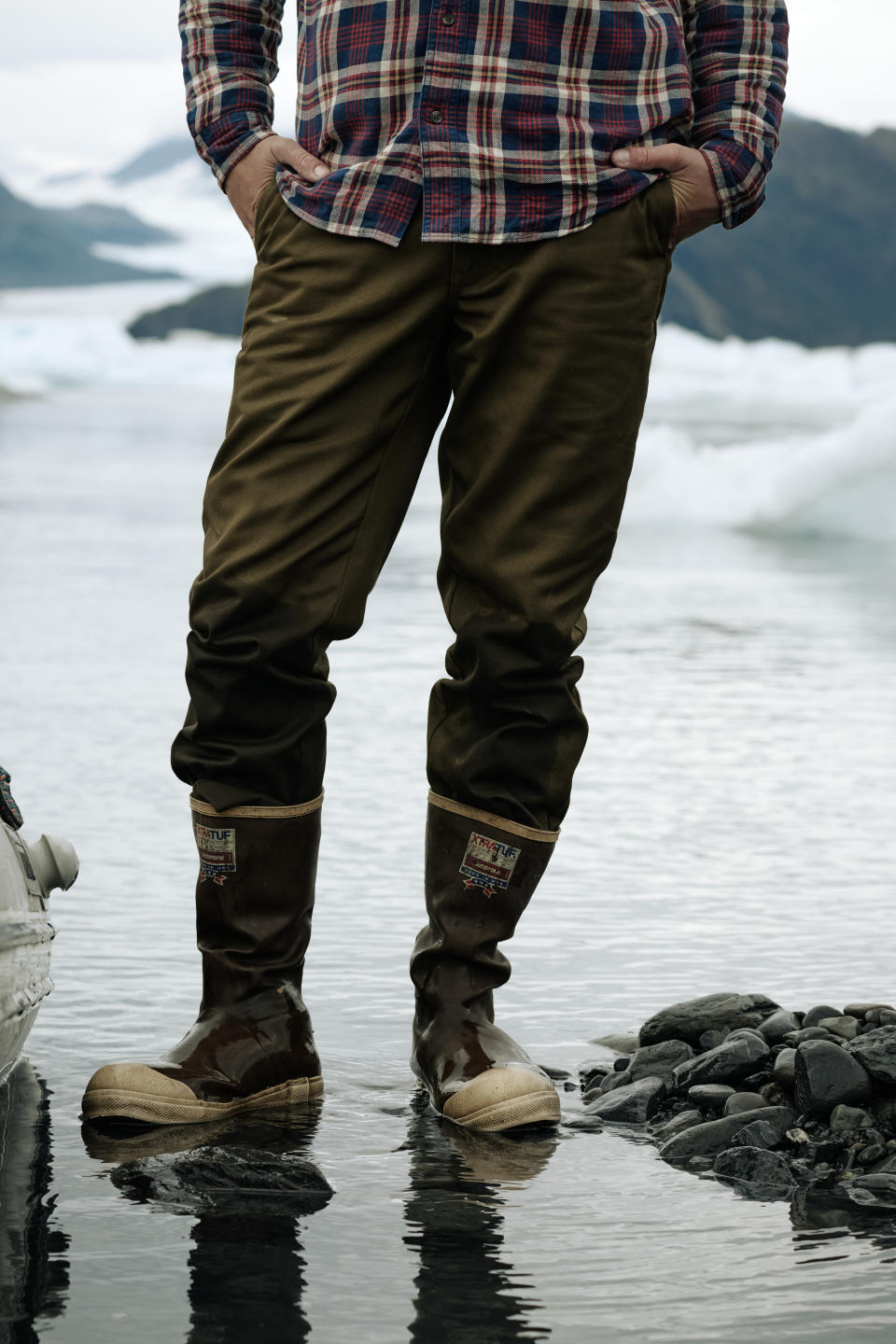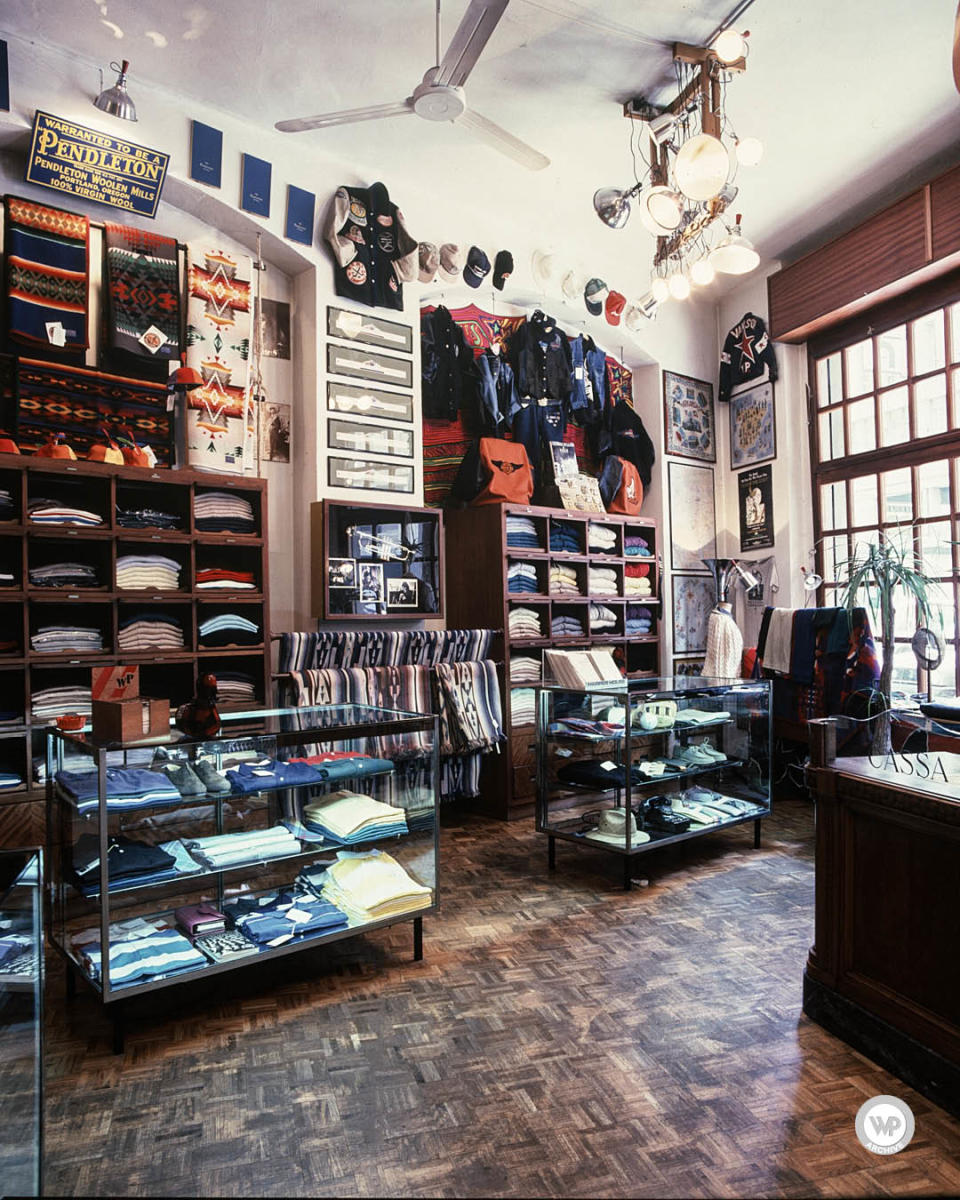WP Lavori in Corso, the European Workwear Beacon, Hits Pitti Uomo

MILAN — If the streetwear craze that dominated high fashion from the mid-2010s has given way to sartorial refinement, one trend that has consistently informed men’s wardrobes and doesn’t seem to be going anywhere is workwear.
It harks back to the fascination for early 20th-century garb and vintage Americana, carried on by heritage brands that managed over time to translate working class clothing codes into an insignia of coolness.
More from WWD
One authority in this segment is undoubtedly WP Lavori in Corso, the Bologna, Italy-based apparel brand licensee, distributor and retail group that has scouted, imported and helped revitalize a number of dormant brands through licensing deals, acquisitions, minority investments — and an overall understanding of the market.
Once the owner of Woolrich — the outerwear brand founded in Pennsylvania in 1830, which WP sold in 2018 to the Luxembourg-based investment firm L-Gam and the Japanese company Goldwin — WP Lavori in Corso, founded in 1982 by Cristiana and her father Giuseppe Calori, now counts seven brands in its portfolio, some of which it owns while others are licensed or for distribution. They include storied British outerwear labels Barbour and Baracuta; the Tasmania, Australia-based shoemaker Blundstone; American shirtmaker B.D. Baggies; luxury knitwear brand Avon Celli; the American outdoor-leaning workwear brand Filson, and apparel company Spiewak.
On the heels of its 40th anniversary in 2022, the company is ready to take on a new chapter, kicking off the year at Pitti Uomo, where Filson and Barbour will unveil their fall collections replete with collaborations, a key component behind WP’s modus operandi.
“The big turning point for WP came after Woolrich was spun off because at that time we restarted from a much smaller scale,” said Lorenzo Sani, WP Lavori in Corso’s chief executive officer. “The past four to five years required a reorganization and retooling on the storied brands part of our portfolio, such as Barbour and Blundstone, which we have been distributing for 40 years, as well as owned labels such as Baracuta and Spiewak.”

The executive is a WP veteran, having joined the firm in the early 2000s. He left in 2014 to pursue other opportunities and returned last September, a couple of years after the company took a 10 percent stake in Filson, which was founded in 1897, while serving as its licensing and distributing partner for Europe in 2021.
“WP started to redefine its perimeter, leveraging brands that are all aligned with the company’s spirit, validated by their heritage and archives. These are brands that have made sportswear and workwear history,” the executive said.
The retooling strategy has paid off — WP Lavori in Corso’s revenues amounted to 60 million euros in 2023, double the figure it posted in 2018, before Woolrich was sold.
Helping add to its success is that WP’s rich portfolio has allowed it over the years to create a number of different tailor-made deals.
“When possible, our ambition is to preside over the brand, but that’s not always feasible,” Sani said. As an example, WP has a distribution agreement solely for the Italian market with the 100-year-plus label Barbour. “There’s a tight bond between the two families and the business relationship is very solid,” he said. “We could hardly imagine a different deal with them.”
When it comes to owned brands, he added that acquisitions oftentimes respond to the former owners’ desire to see their values carried on. “They see WP as the ideal heir to the stories they have built,” he said.
Asked about the latest investment in Filson, Sani said the company’s ambition is to grow its stake over time, after the completion of an integration process between the U.S. and European operations. “The influence of WP is felt increasing, and that’s possible because the two companies are culturally very similar,” he noted.

The Caloris’ passion for workwear is ingrained in the company’s DNA. “It’s perhaps the untold mission of the company — what WP has always done, [leveraging its] passion for sportswear history,” he said. “Over the past 10 years I worked at La Sportiva [a leading mountaineering shoemaker] and I could tell how sportswear and workwear have influenced high fashion. There’s [an enduring] attraction that fashion is having with core workwear, outdoor and sportswear brands,” he said.
Case in point: WP Lavori in Corso has orchestrated a number of collaborations for its brands, including for Barbour with Maison Kitsuné and Alexa Chung, and for Baracuta with Palace, Needles and Wacko Maria.
More are on the horizon. To be sure, in a globally connected world the role of distributing companies like WP Lavori in Corso increasingly hinges on sensing the pulse of local markets and translating the brand’s codes accordingly.
One such example is Barbour’s collaboration with Japanese designer Tokihito Yoshida that will be unveiled at Pitti Uomo, a line Sani believes will resonate with fashion-forward Italian customers. It comprises a limited-edition Barbour Beacon Heritage wax jacket. A cross-pollination between Barbour and Baracuta will result in the second collaboration between the two WP brands — also slated to be unveiled at the fair, which centers around the latter’s signature G9 Harrington jacket.
Baracuta is particularly suited for collaboration, according to Sani. “I think when a brand has icons, then collabs can do wonders. Baracuta is very recognizable for its G9 [Harrington] jacket,” which has been reinterpreted multiple times, he said.
At the menswear trade fair, WP is also spotlighting Filson highlighting key codes within the fall 2024 collection including tin cloth bags, thick woolen blankets, dry tin cruiser jackets and vests, as well as flannel shirts. In developing Filson’s womenswear range, WP is injecting a European sensibility, Sani said, in order to fill a market gap for women’s workwear in the continent.
Although Barbour continues to represent the bulk of WP’s revenues, Filson and Baracuta have shown the most rapid growth. Sani expects to further cement their footprints in the 2024 to 2025 period. Starting this year, the company will also shed a light on the dormant Spiewak brand it acquired in 2013. Plans call for retooling the label in the next couple of years to embrace the next growth phase.

Having built a strong network of retailers, WP’s business model remains firmly wholesale-driven, although it has made a direct-to-consumer push for brands including Filson — opening the label’s first European store in Cortina d’Ampezzo, Italy, last December, as reported — Baracuta and Barbour.
Asked about forging new deals, be they acquisitions or new licensing agreements, Sani said that talks are ongoing on more than one front, but declined to provide specifics. But with any potential deal, he stressed, aligned values will always be the guiding principle.
“WP has an amazing spirit, a way of looking at this sector with romantic and passionate eyes,” which brands recognize, he said.
Best of WWD


